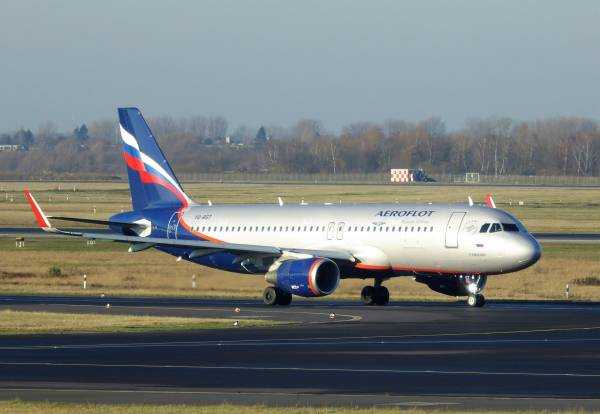
Aeroflot airline has extended baggage-free fares to all short-haul and medium-haul routes since June 4, both its own and those of its subsidiaries Rossiya and Aurora. As expected, in most cases the savings for passengers buying such tickets were insignificant. At the same time, those who carry luggage will pay significantly more, reports our own correspondent Travel.ru.
The new baggage-free tariff is called “Light”. It applies to all routes except long-haul (to the Far East, East Asia and America), fixed-rate routes (from Moscow to Simferopol and Kaliningrad) and routes from Moscow to Rostov-on-Don and Kazan (the latter due to FAS regulations). The cost of adding baggage to the baggage-free tariff on domestic routes is 2,000 rubles per piece each way. The second piece of checked baggage also costs 2,000 rubles. On international routes, the first and second pieces of baggage cost 40 euros or 2,900 rubles.
It is known that such an addition at the airport will cost more than the one made in advance on the company's website - before checking in for the flight. During online check-in and after it, adding online is obviously impossible (but you can cancel the previously made online check-in, add luggage and then check in again). At the same time, such a purchase covers only the standard space of 23 kilograms. Any excess will result in a minimum of 3,000 rubles being charged at the airport. If you bought additional luggage and then decided to fly with carry-on luggage only, you can get a refund for the luggage (but you cannot get back the difference between the baggage and baggage-free fares). In addition, passengers flying together cannot combine the purchased baggage allowance with the baggage allowance originally included in the fare.
In most cases, it will be cheaper for a passenger wishing to carry baggage to immediately issue a baggage tariff, rather than adding bags to a baggage-free tariff. However, there will be exceptions to this rule - passengers should carefully compare tariffs and calculate the cost for each option. At the same time, members of elite levels of Aeroflot Bonus and other loyalty programs of the SkyTeam alliance will be able to carry one piece of checked baggage free of charge even on baggage-free tariffs.
The “Light” tariff has replaced the previous “Budget” tariff group. Among other things, this means that on the routes where such a replacement has occurred, there will no longer be non-refundable baggage tariffs. Any ticket that includes baggage can be checked in. At the same time, any ticket without baggage will be non-refundable – even if the passenger subsequently buys baggage for it.
It is likely that Aeroflot's rule on free transportation of ski equipment (and on some routes, diving equipment) will not apply to baggage-free fares. In any case, this is the typical solution for most companies that have baggage-free fares but at the same time offer free transportation of skis and snowboards.
Previously, all other notable Russian and many foreign carriers had introduced baggage-free fares. As a result, Aeroflot found it somewhat inconvenient to compete with them on price, while including baggage in the price of any ticket. When searching for tickets from agents or on aggregator sites, Aeroflot often ended up at the end of the list, sorted by ascending ticket price.
The innovation will allow Aeroflot to reduce the minimum fare somewhat (by depriving it of included baggage) and thus compete better with other carriers in terms of price. At the same time, as the experience of almost any airline shows, the introduction of baggage-free fares inevitably leads to an increase in the price of the minimum baggage fare – and often such an increase turns out to be much more significant than the reduction of the minimum fare. In other words, on average, flying becomes noticeably more expensive (although for individual passengers it is sometimes cheaper).
Aeroflot's entry into the baggage-free fare race will seriously change the pricing situation on both domestic routes and some international ones. Among other things, at least on many domestic routes, there is a risk of returning to a situation reminiscent of a cartel agreement from about 3-6 years ago. Back then, let us recall, on most domestic routes, the minimum prices of almost all carriers were identical down to the ruble (and Aeroflot's price movements were immediately copied exactly by all competitors). The situation changed three years ago, when Siberia, and then many other companies, began offering baggage-free fares. As a result, the product for everyone went from being the same to being different, and the prices also began to differ. Now that everyone will have baggage-free fares, there is a risk of returning to a similar situation of equally high fares, but no longer including baggage.
Source: travel.ru












